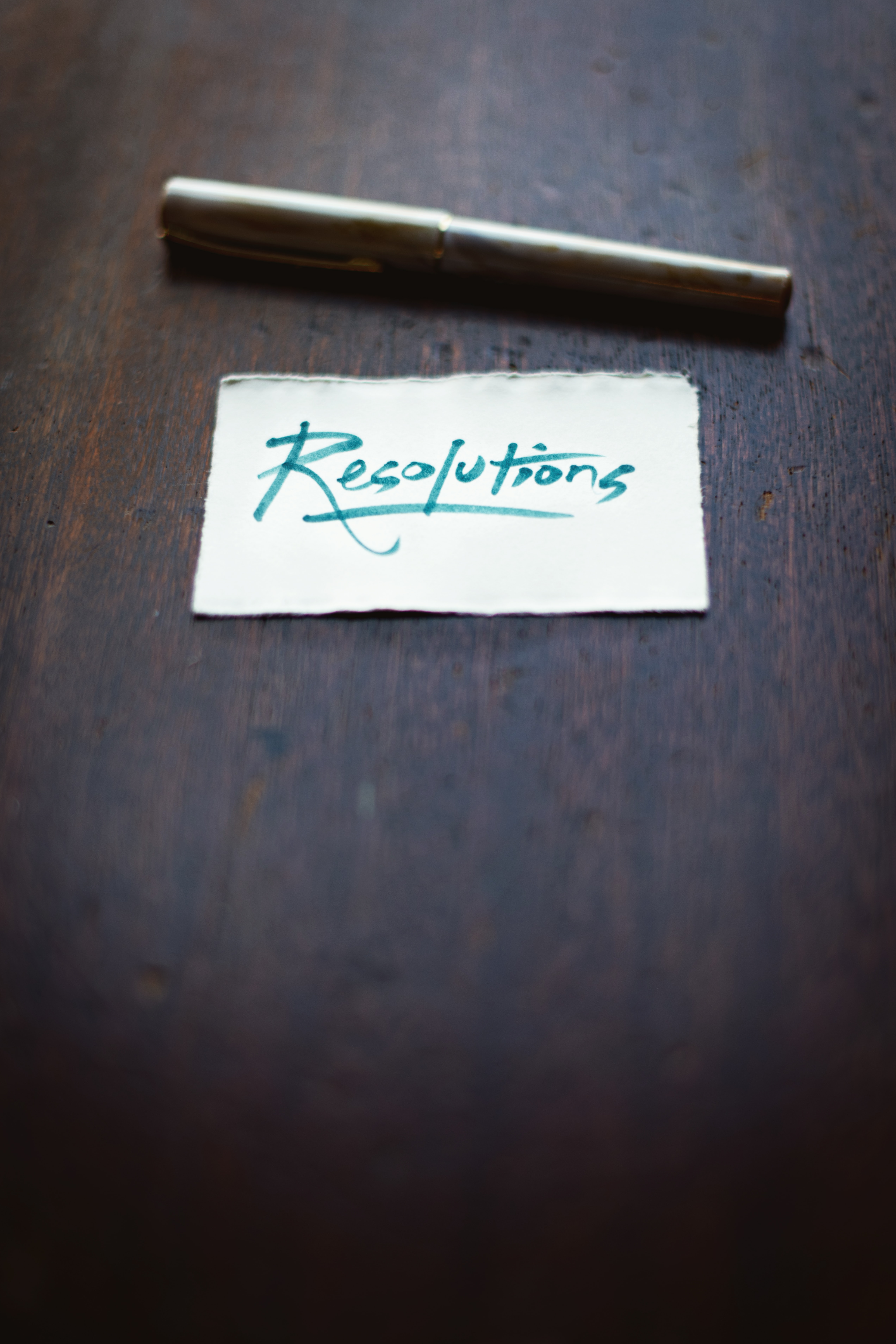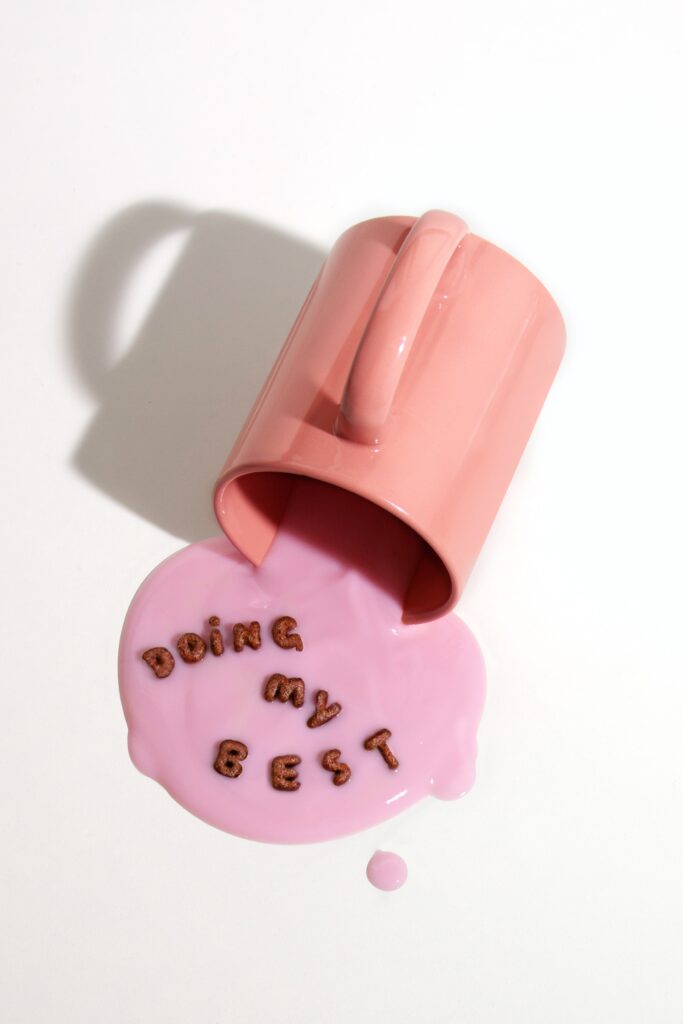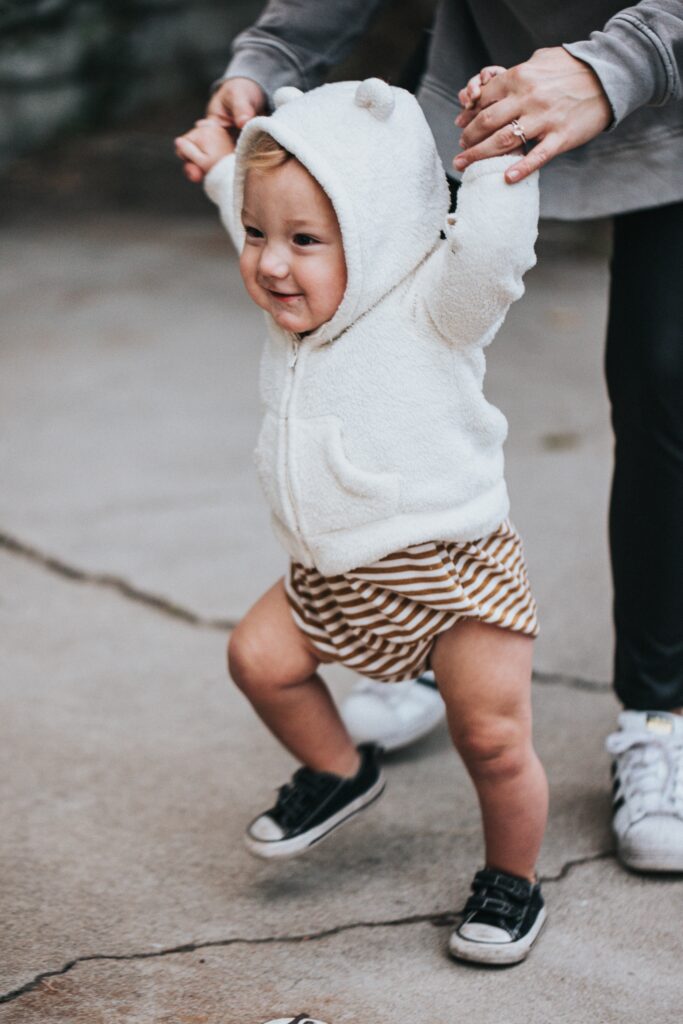Did you make any New Year resolutions this year? Are you sticking to them? If you are – congratulations. Most folks will have abandoned them by today.
Each year, we set ourselves goals and each year, well, we usually give up. The question is, why? I am fascinated by how our minds work and how sometimes, we allow them to take us down paths that are clearly not good for us. We neglect to exercise or eat well and even to pursue our dreams. We want to change our habits but don’t know how.

Life habits
Since our brains can only process so much in one day, about 45% of what we do is habit. Our brains function on a sort of auto-pilot, which means we get up each morning, wash and brush our teeth without giving it any thought at all. We were taught as children to develop these habits and are rewarded with clean skin and healthy teeth. However, other equally automatic routines may cause us harm.
In order to change our habits or encourage new ones, we must first look at how they are formed. James Clear in his article ‘How to Start New Habits that Actually Stick’ explains it this way. A habit arises from a cue that the brain anticipates will bring a reward. For example, you wake up and wish to be alert. You drink a cup of coffee. This satisfies your desire to be alert. Your brain then associates waking with drinking coffee and a habit is born.

Rewards
The key here is seeing what the reward is for your behaviour. The greater the perceived reward, the more likely you are to pursue it. If you see no reward – or only one you might achieve in the distant future – you will be unlikely to change your behaviour. Which is perhaps why we succumb to the desire for another piece of cake (instant reward) rather than passing and going to the gym instead (long-term reward).
So how do we bring better habits into our lives? Chris Sparks suggests that a rethink is in order. Rather than focusing on creating an entirely new habit from scratch, we should work towards making that new habit easier to achieve. He says:
If your daily habits require discipline to execute, you’re doing it wrong. With a habit-centric approach, we don’t “do things” as much as “make the things we want to do easier to do in the future”. Redirect that discipline towards building systems which can redirect the flow of our future behavior by making your habits easier to perform.
When acquiring a habit is just too hard and goes against the grain of our lives, we are doomed to failure. However, if we design a system that will encourage our success, we are likely to achieve our aims. Both good and bad habits take a long time to form. It may take months or it may take years, but if it is truly worth doing, the timescale is irrelevant.

Working towards achieving
This phrase, beloved by teachers, is actually a very good one. When we set our goal as working towards achieving, we give ourselves a little leeway. We are not so much failing as working on it and so hopefully, do not give up in despair.
When I was diagnosed with MS, I had two choices: succumb to my fate and continue life as usual or opt for a hopeful, though not certain, possibility of stability or even partial recovery. The first option would inevitably result in total disability within a matter of years. The second might, just might, hold that fate off for a while.
The decision was easy. Following it was rather harder. It required not just acquiring one new habit but many simultaneously. Stress reduction was paramount, so yoga and meditation needed to become part of my daily routine. My diet changed almost completely – moving from lacto-ovo vegetarian with very little fish to plant based with some fish and almost no pre-made foods.
There would be much stumbling, moments of weakness, back-sliding and general grumpiness at the whole situation, but I’m glad to say that after seven years, for the most part, I have succeeded. The discipline of exercise, meditation, cold showers, a restricted diet etc became natural. And as it did so, my resistance and frustration dissolved.

Of course, I am not perfect. Sometimes life is a little crazy and I eat rubbish food or forget to do my yoga. And that’s okay. Forgiving yourself the odd relapse allows you to start again. If we are too strict with ourselves, we may just give up.
Changing habits
Perhaps the most important element of changing habits is to become more aware of those we have that we wish to alter. Since habits are, by definition, subconscious behaviours, we will have no chance of success unless we bring them into the light.
Let’s take the example of a bag of delicious, salty cashew nuts (my favourite). I probably eat too many of them, so how do I go about reducing my consumption?
James Clear proposes the following:
The cue – make them invisible (Put them in the cupboard out of sight or don’t purchase)
Craving – make it unattractive (These nuts will expand my waistline!)
Response – make it difficult (Where are those nuts?)
Reward -make it unsatisfying (Having eaten them, instead of feeling happy, I will feel as though I have let myself down. )
In order to create a new, good habit, do the opposite.
Baby steps

Few things worthwhile are achieved in a moment. Like a child learning to walk, it will take perseverance, the odd tumble and lots of praise.
In order to successfully redirect our neural pathways, we will need to repeat our actions over and over again. Since most of what we do is automatic, we need to first become mindful of our behaviours. Focussing on what we do and consciously choosing to do it will help us avoid lapsing into mindless and possibly detrimental activities.
Equally, when we achieve our goal of redirecting our minds to a more positive action, we should congratulate ourselves on a job well done and focus on the benefits that it will bring. Our minds are driven by reward: make sure you offer one!
Starting small and gaining little victories is always more likely to succeed than making unrealistic goals. I could never run, no matter how much I would like to, but I can gradually increase the distance I can walk.
Whatever you would like to do (or not do) be kind to yourself. Think what you can easily manage: five minutes’ meditation or Duolingo and do it – every day. Before you know it, that time will increase and your new, positive habit will be formed.



